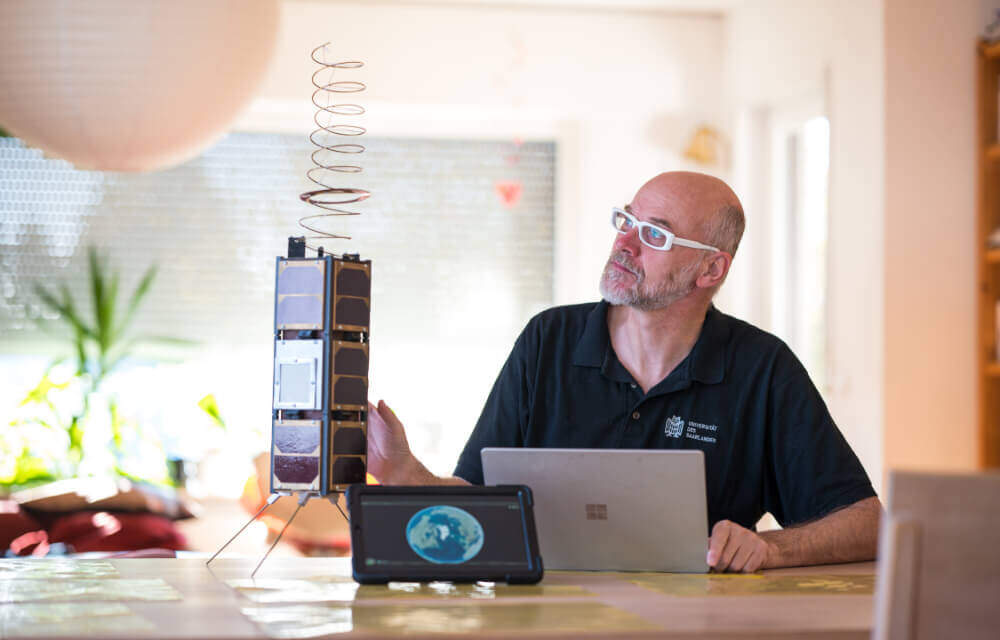Saarbrücken computer scientists to commercialize research on nano-satellites with EU funding

Computer scientist Professor Holger Hermanns with the model of a nano-satellite ©Oliver Dietze
The market for so-called LEO (low-earth orbit) satellites is growing rapidly: Today, about 2500 active satellites orbit our planet in this Zone. Over the next 10 years launches for about 50,000 more have already been announced. . They can, for example, take high-resolution photos of our planet, or reinforce telecommunications networks. Computer scientists at Saarland University have optimized the use of this type of satellite. To bring their developments to the market, they are now being funded by the European Research Council (ERC).
The European Union supports technology transfer with so-called Proof-Of-Concept funding. Under this program, researchers who are already funded by the ERC receive a total of 150,000 euros for 18 months. The aim is to turn developments from cutting-edge European research into marketable products.
The team around computer science professor Holger Hermanns at the Saarland Informatics Campus has already been researching the space topic since 2016 and is being funded for this with the multi-million ERC Advanced Grant “POWVER”. The scientists have already been able to significantly improve the calculation of the energy budget and the control of so-called nano-satellites, i.e. very small satellites weighing no more than 10 kilograms. “With the new “LEOpowver” funding, we will now experiment in detail with some nano-satellites in low-Earth orbit and work out a commercialization strategy for our previous developments,” Hermanns explains. In the project, as in previous projects, the Saarbrücken researchers are cooperating with the Danish-Luxembourg satellite operator GOMspace.
More information about Professor Hermanns’ research on nano-satellites can be found in the press release from Nov. 30th, 2020.
Further Information:
https://erc.europa.eu/news/PoC-recipients-2020-third-round
https://erc.europa.eu/funding/proof-concept
https://gomspace.com/home.aspx
Questions can be directed at:
Prof. Dr. Holger Hermanns
Email: hermanns@cs.uni-saarland.de
Tel.: +49 (0)681 302 5630
Background Saarland Informatics Campus:
800 scientists and about 2000 students from more than 80 nations make the Saarland Informatics Campus (SIC) one of the leading locations for computer science in Germany and Europe. Five world-renowned research institutes, namely the German Research Center for Artificial Intelligence (DFKI), the Max Planck Institute for Computer Science, the Max Planck Institute for Software Systems, the Center for Bioinformatics and the Cluster for “Multimodal Computing and Interaction” as well as Saarland University with three departments and 21 degree programs cover the entire spectrum of computer science.
Editor:
Philipp Zapf-Schramm
Competence Center Computer Science
Saarland Informatics Campus
Phone: +49 681 302-70741
E-Mail: pzapf@mmci.uni-saarland.de
